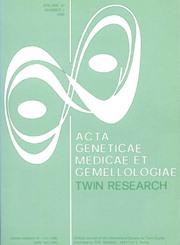No CrossRef data available.
Article contents
Prenatal Genetics with Particular Reference to Neurological Disease
Published online by Cambridge University Press: 01 August 2014
Abstract
Prenatal diagnosis, although it has been introduced only a few years ago, has already become an important branch of genetics and cytogenetics.
Metabolites of certain monogenic diseases can be discovered in the supernatant of the amniotic fluid, although reliable results are obtained in later months of pregnancy only.
Determination of fetal sex is important if the mother is a proven carrier of a severe X-linked disease such as X-linked muscular dystrophies, Hunter's, Lowe's, Lesch-Nyhan disease. It can be done by the analysis of nuclear sex or sex chromosomal complement.
Biochemical studies of amniotic fluid cells, notably cultured amniotic fluid cells, permit prenatal diagnosis of some inborn errors of metabolism such as Tay-Sachs disease, Hurler's and Hunter's disease, and some rare monogenic diseases.
Numerically of greater importance is the prenatal chromosomal analysis of high-risk women. Provided it could be done in all so-called high-risk women, a considerable number of aneuploidies could be prenatally detected and ultimately prevented.
Religious and legal implications of eugenic abortions are discussed.
- Type
- 2. Genetic Counseling and the Detection of Carriers in Neurology
- Information
- Acta geneticae medicae et gemellologiae: twin research , Volume 23 , supplement S1 , January 1974 , pp. 103 - 114
- Copyright
- Copyright © The International Society for Twin Studies 1974


